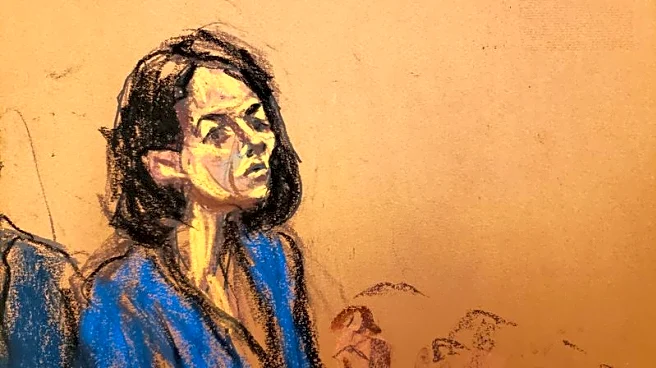What's Happening?
The romantic comedy 'The Wrong Paris' has become the most-watched movie on Netflix, according to the platform's public ranking system. The film stars Miranda Cosgrove as a single woman who mistakenly joins a dating show set in Paris, Texas, instead of Paris, France, where she was accepted into art school. The plot follows her attempts to get eliminated from the show, only to be charmed by a cowboy bachelor played by Pierson Fodé. Despite its popularity, the movie has received mixed reviews, holding a 60% score on Rotten Tomatoes. While some viewers have enjoyed the film, others, including critics from The Guardian, have labeled it as a low-grade background watch.
Why It's Important?
The success of 'The Wrong Paris' highlights the ongoing trend of romantic comedies gaining traction on streaming platforms, despite critical reception. This trend underscores the shift in viewer preferences towards light-hearted and escapist content, especially in the current global climate. The film's performance could influence Netflix's future content strategy, potentially leading to more investments in similar genres. Additionally, the mixed reviews reflect the broader challenge streaming services face in balancing content that appeals to both critics and general audiences.
What's Next?
As 'The Wrong Paris' continues to trend, Netflix may consider leveraging its success by promoting similar content or even developing sequels or spin-offs. The film's performance could also prompt other streaming services to explore romantic comedies as a viable genre for attracting viewers. Furthermore, the mixed critical reception may lead Netflix to refine its marketing strategies to better manage audience expectations and critical feedback.
Beyond the Headlines
The film's setting in Paris, Texas, rather than the more glamorous Paris, France, may also reflect a cultural commentary on American perceptions of romance and adventure. This choice of setting could be seen as a metaphor for finding unexpected love and excitement in familiar or overlooked places, resonating with audiences seeking relatable narratives.












